Haiyan He, PhD, Assistant Professor of Biology at Georgetown University completed work on “A novel protein-degradation-based mechanism for fast homeostatic plasticity and its implication in neurodegenerative diseases.” Mentored by Seth Margolis at Johns Hopkins and a multidisciplinary team at Georgetown, she established and grew a new research program focused on neuroplasticity, developed new imaging methods, explored new mechanisms with translational potential, transitioning directly to independent R01 support for her research.
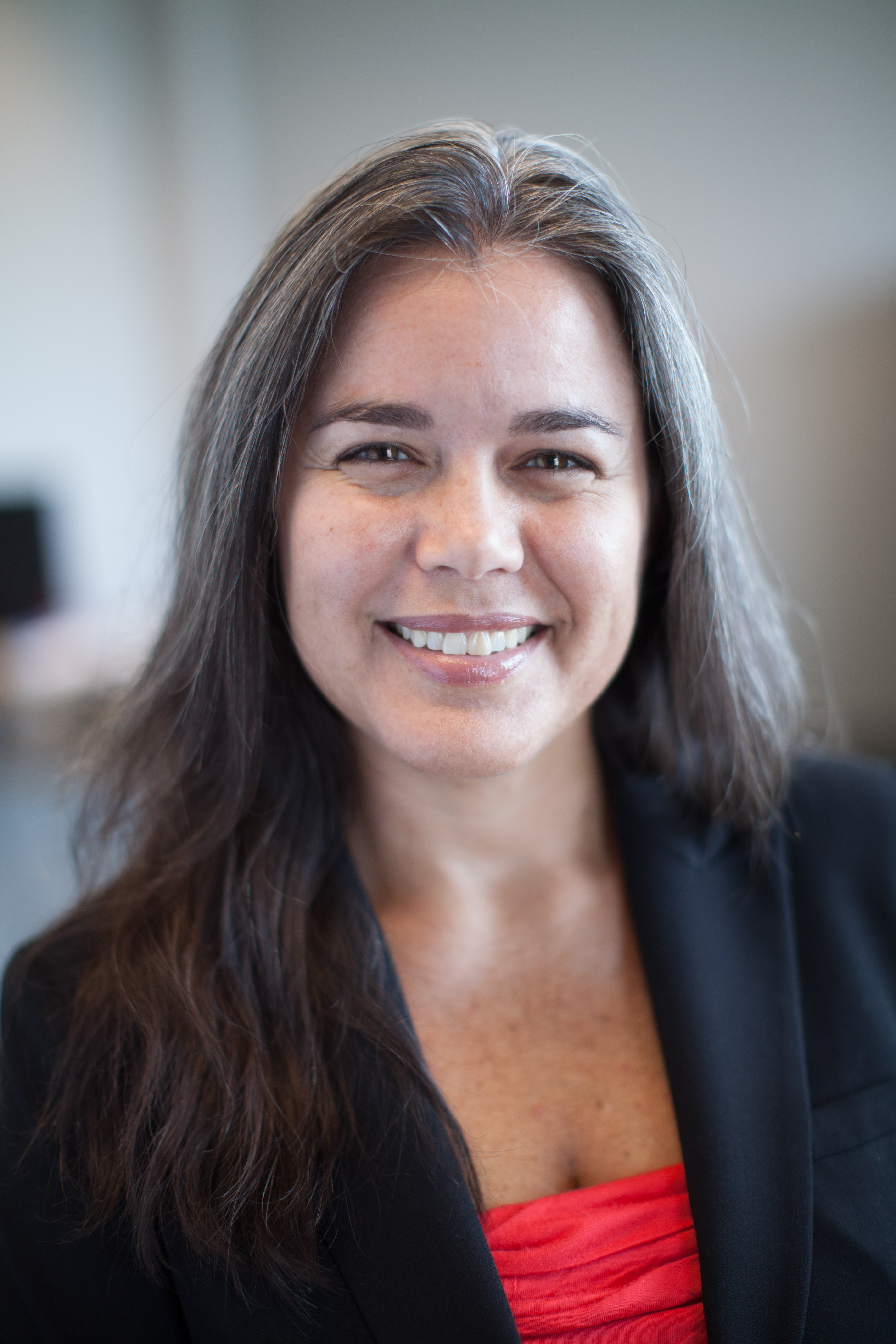 Roxanne Mirabal-Beltran, PhD, RN, Assistant Professor of Professional Nursing Practice at the Georgetown University School of Nursing, developed a novel community-based, participatory research program, “Impact of a Fertility and Pregnancy Educational Intervention in an Urban Setting on Women’s Knowledge Level of Fertility, Pregnancy, and Health-Seeking Behaviors to Build a Culture of Health" with mentorship by Laura Linnan (UNC Chapel Hill), Linda Gallo (San Diego State University) Alejandra Hurtado de Mendoza Casaus (Georgetown Lombardi Comprehensive Cancer Center, and a former KL2 scholar). Her research focuses on the novel delivery of health education in community laundromat settings.
Roxanne Mirabal-Beltran, PhD, RN, Assistant Professor of Professional Nursing Practice at the Georgetown University School of Nursing, developed a novel community-based, participatory research program, “Impact of a Fertility and Pregnancy Educational Intervention in an Urban Setting on Women’s Knowledge Level of Fertility, Pregnancy, and Health-Seeking Behaviors to Build a Culture of Health" with mentorship by Laura Linnan (UNC Chapel Hill), Linda Gallo (San Diego State University) Alejandra Hurtado de Mendoza Casaus (Georgetown Lombardi Comprehensive Cancer Center, and a former KL2 scholar). Her research focuses on the novel delivery of health education in community laundromat settings.
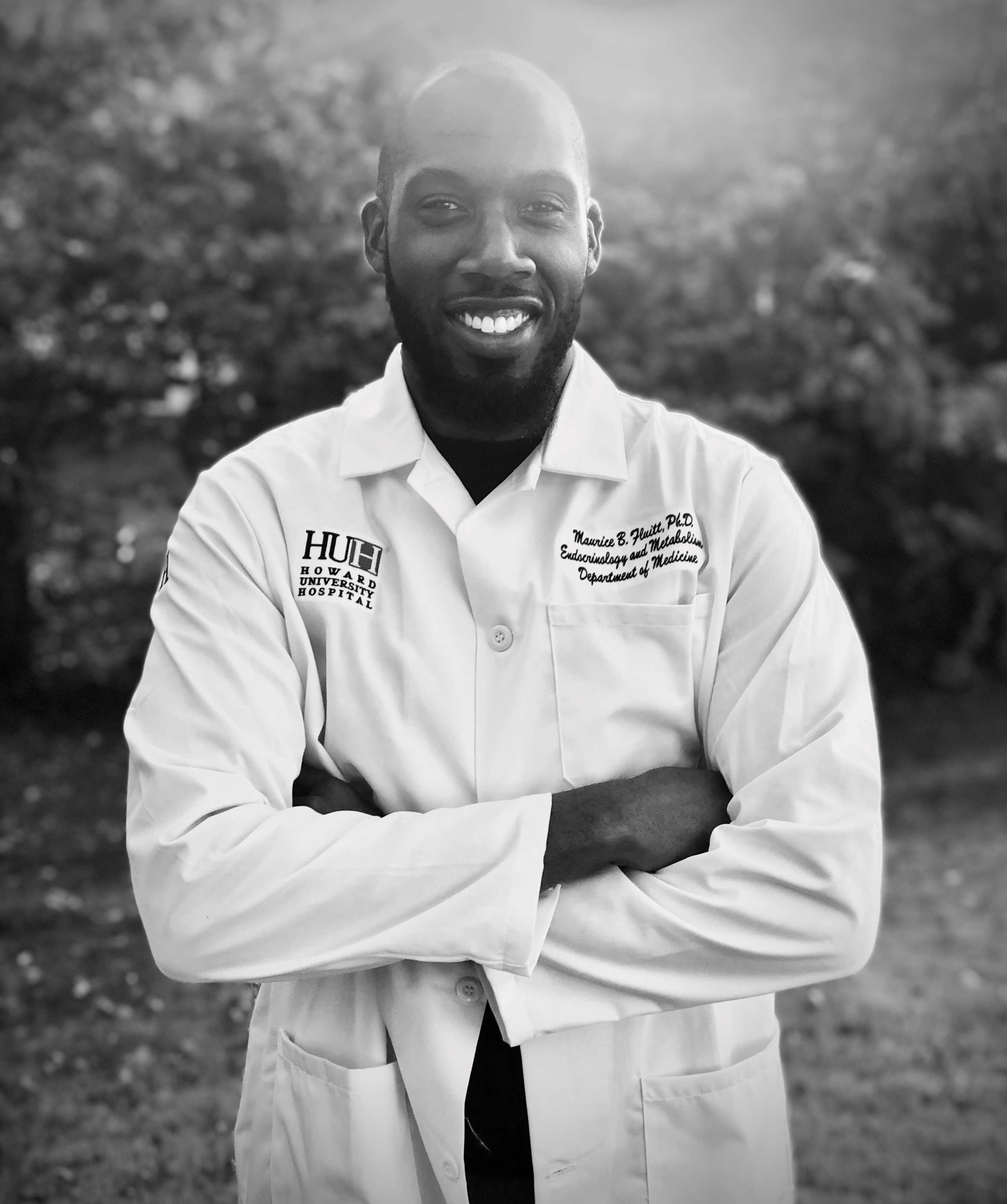
Maurice B. Fluitt, PhD Assistant Professor of Medicine (Endocrinology and Metabolism) at the Howard University College of Medicine, was our second TL1 scholar to progress to KL2 support. During his KL2 work, he investigated the role “MicroRNAs as Early Markers and Mediators of Diabetic Kidney Disease,” with primary mentorship by Ben Afzali (NIDDK Intramural) and comentorship by Gail Nunlee-Bland and Hassan Ashktorab (Howard), Carolyn Ecelbarger (Georgetown), and Allison Kriegel (Medical College of Wisconsin). He has now expanded his research and collaborative network across the translational spectrum to focus on exosomal biomarkers in patients and in rodent models with support from multiple foundation grants and including mentorship of a TL1 postdoctoral trainee in our program.
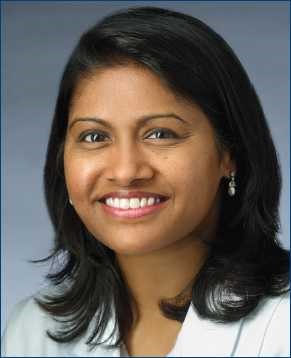
Annie J. Kruger, MD PhD, is Clinical Research Director in Immunology and Inflammation Early Development at Sanofi. During her support as a KL2 scholar she was Assistant Professor of Medicine in the Division of Gastroenterology at Georgetown, focused “Mechanisms of Chemokine Antagonism in Generating Reparative Macrophages and Inhibiting Hepatic Stellate Cell Activity” with mentorship by Drs. Jill Smith, Fung-Lung Chung, and Moshe Levi. During her training she expanded her commitment to drug development, transitioning to a full time pharmaceutical research position in her area of translational and clinical focus.
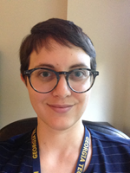 Katherine G. Michel, PhD MPH, is a health scientist in the Health Resources and Services Administration with a primary translational research focus on maternal and infant health. Her KL2 research, mentored by Drs Seble Kassaye and Dan Merenstein at Georgetown, Jacques Ravel at Maryland and Daniel Douek at NIAID. Following her KL2, she expanded her research within the WIHS Cohort Study then transitioned to the DC Department of Health before moving to HRSA to pursue her primary interest in maternal and infant health. She continues collaborative research with other GHUCCTS investigators, focused on geospatial assessment of maternal health disparities in Washington DC and mechanisms contributing to fetal growth restriction in pregnancies impacted by HIV.
Katherine G. Michel, PhD MPH, is a health scientist in the Health Resources and Services Administration with a primary translational research focus on maternal and infant health. Her KL2 research, mentored by Drs Seble Kassaye and Dan Merenstein at Georgetown, Jacques Ravel at Maryland and Daniel Douek at NIAID. Following her KL2, she expanded her research within the WIHS Cohort Study then transitioned to the DC Department of Health before moving to HRSA to pursue her primary interest in maternal and infant health. She continues collaborative research with other GHUCCTS investigators, focused on geospatial assessment of maternal health disparities in Washington DC and mechanisms contributing to fetal growth restriction in pregnancies impacted by HIV.
 Chukwuemeka Ihemelandu, MD, FACS, is Professor of Surgical Oncology at Georgetown University. As a KL2 scholar, with mentorship by Dr. Christopher Albanese and colleagues in pathology and at University of Maryland, his research aimed to “Improving Detection of Microscopic Disease to Improve Survival of Patients with Gastrointestinal Cancers.” He continues this work with foundation grant support to develop novel peptide-based imaging solutions for intraoperative flourescence-guided colorectal cancer surgeries.
Chukwuemeka Ihemelandu, MD, FACS, is Professor of Surgical Oncology at Georgetown University. As a KL2 scholar, with mentorship by Dr. Christopher Albanese and colleagues in pathology and at University of Maryland, his research aimed to “Improving Detection of Microscopic Disease to Improve Survival of Patients with Gastrointestinal Cancers.” He continues this work with foundation grant support to develop novel peptide-based imaging solutions for intraoperative flourescence-guided colorectal cancer surgeries.
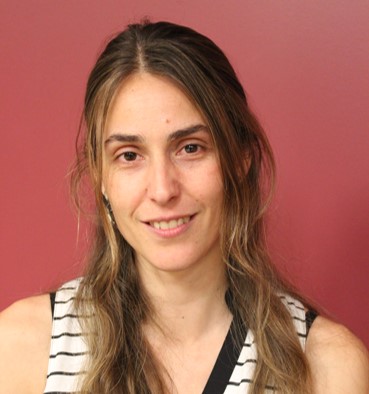 Alejandra Hurtado de Mendoza, PhD, is Associate Professor of Oncology at Georgetown University. As a KL2 scholar mentored by Kristi Graves and Mark Schwartz of the Lombardi Cancer Center and Heidi Hamilton (Linguistics), tested a “Culturally Adapted Telephone Genetic Counseling Intervention to Enhance Genetic Risk Assessment in Underserved Latinas at Risk of Hereditary Breast Cancer.” She transitioned directly to a sustained, productive, discipline-spanning NIH-spported research program which has included mentorship and co-mentorship of several KL2 scholars. | Dr. Hurtado de Mendoza NIH Feature
Alejandra Hurtado de Mendoza, PhD, is Associate Professor of Oncology at Georgetown University. As a KL2 scholar mentored by Kristi Graves and Mark Schwartz of the Lombardi Cancer Center and Heidi Hamilton (Linguistics), tested a “Culturally Adapted Telephone Genetic Counseling Intervention to Enhance Genetic Risk Assessment in Underserved Latinas at Risk of Hereditary Breast Cancer.” She transitioned directly to a sustained, productive, discipline-spanning NIH-spported research program which has included mentorship and co-mentorship of several KL2 scholars. | Dr. Hurtado de Mendoza NIH Feature
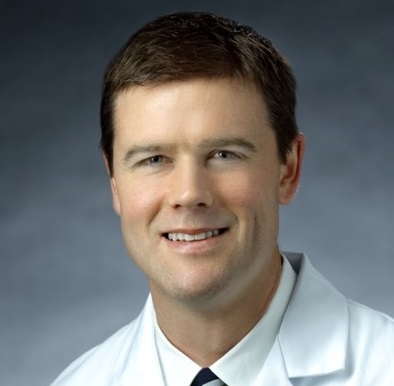 Matthew A. Edwardson, MD, is Associate Professor of Neurology, and Rehabilitation Medicine at Georgetown University. As a KL2 scholar with mentorship by Drs Alexander Dromerick and Amrita Cheema, he studied “Plasma and exosomal markers of neural repair following stroke.” Since completing his award, he has transitioned to leadership of a large, NIH-supported clinical and translational research program focused on post-stroke rehabilitation.
Matthew A. Edwardson, MD, is Associate Professor of Neurology, and Rehabilitation Medicine at Georgetown University. As a KL2 scholar with mentorship by Drs Alexander Dromerick and Amrita Cheema, he studied “Plasma and exosomal markers of neural repair following stroke.” Since completing his award, he has transitioned to leadership of a large, NIH-supported clinical and translational research program focused on post-stroke rehabilitation.
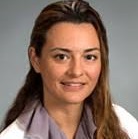 Evgenia Gourgari, MD, is Associate Professor of Pediatrics at Georgetown University, whose KL2 research, mentored by Alan Remaley (NIDDK), Kristina Rother (NIDDK) and Joseph Verbalis (Georgetown) focused on “The impact of insulin resistance and its treatment on cardiovascular risk in youth with type 1 diabetes.” Her current research focuses on adolescent obesity and metabolic disease and trials.
Evgenia Gourgari, MD, is Associate Professor of Pediatrics at Georgetown University, whose KL2 research, mentored by Alan Remaley (NIDDK), Kristina Rother (NIDDK) and Joseph Verbalis (Georgetown) focused on “The impact of insulin resistance and its treatment on cardiovascular risk in youth with type 1 diabetes.” Her current research focuses on adolescent obesity and metabolic disease and trials.
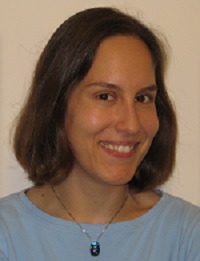 Anna Greenwald, PhD, Associate Professor of Neurology at Georgetown University and at MedStar National Rehabilitation Hospital leads a discipline spanning, NIH-supported collaborative translational research program focused on brain plasticity and stroke recovery in adults and children. Her KL2 research, co-mentored by Alexander Dromerick and Elissa Newport assessed the “Impact of right-hemisphere (RH) stroke on functional performance and brain organization.” She has gone on to mentor several of our pre- and post-doctoral TL1 scholars | Dr. Greenwald NIH Feature
Anna Greenwald, PhD, Associate Professor of Neurology at Georgetown University and at MedStar National Rehabilitation Hospital leads a discipline spanning, NIH-supported collaborative translational research program focused on brain plasticity and stroke recovery in adults and children. Her KL2 research, co-mentored by Alexander Dromerick and Elissa Newport assessed the “Impact of right-hemisphere (RH) stroke on functional performance and brain organization.” She has gone on to mentor several of our pre- and post-doctoral TL1 scholars | Dr. Greenwald NIH Feature
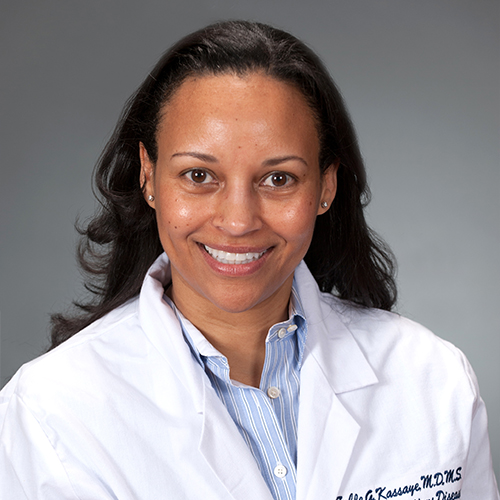 Seble G. Kassaye, MD, MS, Associate Professor of Medicine at Georgetown is a clinical and translational HIV investigator, leading the DC Center for Aids Research and the MACS/WIHS Combined Cohort, among others. Her KL2 research, mentored by David Katzenstein (Stanford) and Frank Malderelli (NIH) focued on “HIV Transmission Dynamics in Washington DC,” leveraging viral sequencing and advanced informatics to identify HIV transmission clusters and transmitted antiretroviral resistance. She has gone on to mentor both TL1 and KL2 scholars in our program.
Seble G. Kassaye, MD, MS, Associate Professor of Medicine at Georgetown is a clinical and translational HIV investigator, leading the DC Center for Aids Research and the MACS/WIHS Combined Cohort, among others. Her KL2 research, mentored by David Katzenstein (Stanford) and Frank Malderelli (NIH) focued on “HIV Transmission Dynamics in Washington DC,” leveraging viral sequencing and advanced informatics to identify HIV transmission clusters and transmitted antiretroviral resistance. She has gone on to mentor both TL1 and KL2 scholars in our program.
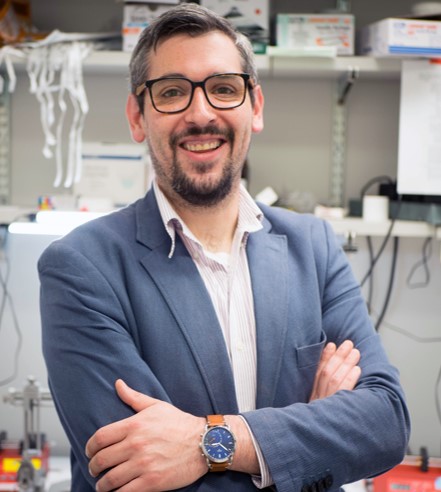 Patrick A. Forcelli, Ph.D., is Professor and Chair of Pharmacology & Physiology at Georgetown University. As a KL2 scholar and with mentorship by Drs. Motamedi (Neurology) and Malkova (Pharmacology) he studied “Dendritic BDNF in hippocampal epileptogenesis and memory function,” focusing on a novel role for this mediator in human and experimental temporal lobe epilepsy and memory function. Since then, he has built a thriving and highly collaborative NIH-supported translational science research program focused on seizure disorder and therapeutics, neurodevelopmental toxicity and behavioral pharmacology, including mentorship of TL1 scholars in our program. | Dr. Forcelli NIH Feature
Patrick A. Forcelli, Ph.D., is Professor and Chair of Pharmacology & Physiology at Georgetown University. As a KL2 scholar and with mentorship by Drs. Motamedi (Neurology) and Malkova (Pharmacology) he studied “Dendritic BDNF in hippocampal epileptogenesis and memory function,” focusing on a novel role for this mediator in human and experimental temporal lobe epilepsy and memory function. Since then, he has built a thriving and highly collaborative NIH-supported translational science research program focused on seizure disorder and therapeutics, neurodevelopmental toxicity and behavioral pharmacology, including mentorship of TL1 scholars in our program. | Dr. Forcelli NIH Feature
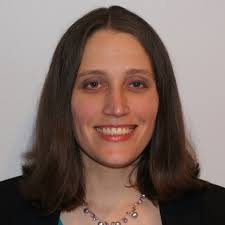 Roxanne E. Jensen, Ph.D., is Director of the Outcomes Resarch Branch of the Healthcare Delivery Research Program in the Division of Cancer Control and Population Sciences at the NCI. Her research portfolio includes telehealth, cancer outcomes, and symptom management. As a KL2 scholar, mentored by Arnold Potosky and Kathryn Taylor, she conducted a novel RCT to provide feedback tobreast cancer survivors, exploring “Electronic symptom assessment as an opportunity for health communication in cancer survivorship.”
Roxanne E. Jensen, Ph.D., is Director of the Outcomes Resarch Branch of the Healthcare Delivery Research Program in the Division of Cancer Control and Population Sciences at the NCI. Her research portfolio includes telehealth, cancer outcomes, and symptom management. As a KL2 scholar, mentored by Arnold Potosky and Kathryn Taylor, she conducted a novel RCT to provide feedback tobreast cancer survivors, exploring “Electronic symptom assessment as an opportunity for health communication in cancer survivorship.”
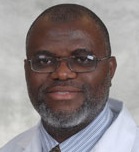 Adeyinka O. Laiyemo, MD, MPH, Professor of Medicine at Howard University, refocused his clinical and translational research during the Covid-19 pandemic to address GI manifestations of acute and postacute disease, and to exploring disparate outcomes in the RECOVER initiative. As a KL2 scholar, mentored by Elizabeth Platz (Johns Hopkins) Robert Taylor (Howard) and Duane Smoot (Meharry), his KL2 and R21 supported research focused on "Improving colon cancer screening among underserved blacks in primary care and specialty clinic settings.”
Adeyinka O. Laiyemo, MD, MPH, Professor of Medicine at Howard University, refocused his clinical and translational research during the Covid-19 pandemic to address GI manifestations of acute and postacute disease, and to exploring disparate outcomes in the RECOVER initiative. As a KL2 scholar, mentored by Elizabeth Platz (Johns Hopkins) Robert Taylor (Howard) and Duane Smoot (Meharry), his KL2 and R21 supported research focused on "Improving colon cancer screening among underserved blacks in primary care and specialty clinic settings.”
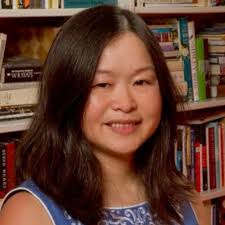
Ihori Kobayashi, PhD, is Senior Scientist at the Walter Reed Army Institute of Research. Her KL2 a Research Assistant Professor with the Howard University Department of Psychiatry and Behavioral Sciences. Her KL2 project, as Assistant Professor at Howard, mentored by Thomas Mellman, with co-mentorship by Larry Sanford at Eastern Virginia leveraged an RCT of suvorexant to ask “Can blocking the orexin system enhance sleep’s benefit to therapeutic exposure for PTSD?” Her clinical and translational research continues its focus on PTSD prevention and therapy.
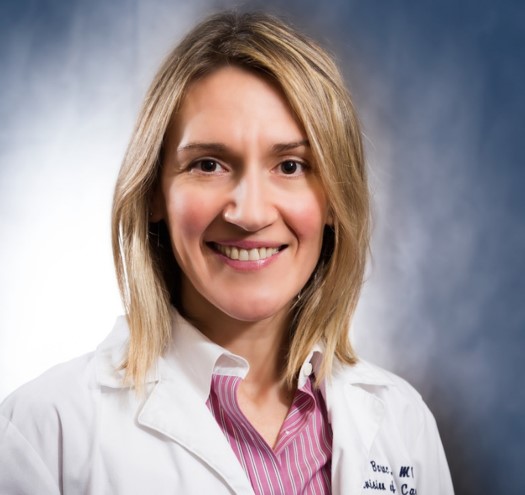 Ana Barac, MD, PhD is Professor of Medicine at Georgetown University and is the D'Aniello Chair of Cardio-Oncology for the Inova Health System. As a KL2 scholar she explored mechanisms, risk prediction and interventions to prevent cardiotoxicity related to BRCA ½ mutations and anticancer therapies. She has gone on to lead international collaborative research projects and clinical trials in cardio-oncology. | Dr. Barac NIH Feature
Ana Barac, MD, PhD is Professor of Medicine at Georgetown University and is the D'Aniello Chair of Cardio-Oncology for the Inova Health System. As a KL2 scholar she explored mechanisms, risk prediction and interventions to prevent cardiotoxicity related to BRCA ½ mutations and anticancer therapies. She has gone on to lead international collaborative research projects and clinical trials in cardio-oncology. | Dr. Barac NIH Feature
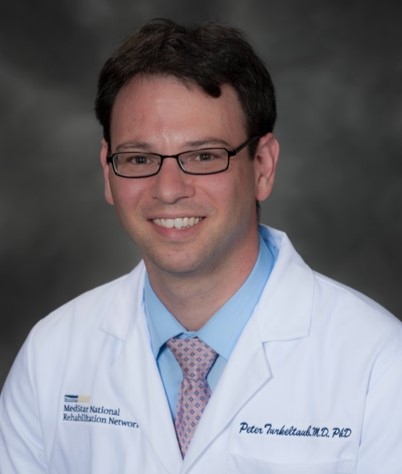 Peter E. Turkeltaub, MD, PhD is Professor of Neurology at Georgetown University and MedStar National Rehabilitation Hospital (MNRH), where he leads a multidisciplinary NIH-supported research program focused on aphasia, stroke recovery, and brain plasticity. His KL2 project, comentored by Rhonda Friedman (Georgetown) and Alexander Dromerick (National Rehabilitation Hospital) assessed “Psycholinguistic and neurobiological factors that predict and track response to electrical stimulation for post-stroke aphasia”, leveraging his RCT of transcranial direct current stimulation (tDCS) to improve recovery from post-stroke aphasia by enhancing left lateralization of the inferior frontal lobes. He has gone on to mentor several TL1 scholars in our program. | Dr. Turkeltaub NIH Feature
Peter E. Turkeltaub, MD, PhD is Professor of Neurology at Georgetown University and MedStar National Rehabilitation Hospital (MNRH), where he leads a multidisciplinary NIH-supported research program focused on aphasia, stroke recovery, and brain plasticity. His KL2 project, comentored by Rhonda Friedman (Georgetown) and Alexander Dromerick (National Rehabilitation Hospital) assessed “Psycholinguistic and neurobiological factors that predict and track response to electrical stimulation for post-stroke aphasia”, leveraging his RCT of transcranial direct current stimulation (tDCS) to improve recovery from post-stroke aphasia by enhancing left lateralization of the inferior frontal lobes. He has gone on to mentor several TL1 scholars in our program. | Dr. Turkeltaub NIH Feature
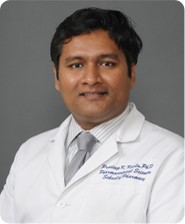
Pradeep Karla PhD is an Associate Professor in Pharmaceutical Science at Howard University and an entrepreneur, biotech founder, and Provost and Professor of the Washington DC ArchAngels Training Institute. As a KL2 Scholar with metorship by Betty Herndon (U Missouri), Muhammad Habib, Leslie Jones, and Anthony Wutoh at Howard he explored “Nanotherapeutic Mediated Efflux Modulation for Improved Ocular Drug Disposition,”focused on antiglaucoma and ocular antiviral drugs. | Dr. Karla NIH Feature
 Vanita Aroda, MD is Associate Professor of Medicine and Director of Diabetes Clinical Research at Brigham and Women’s Hospital. While a KL2 scholar, mentored by Robert Ratner (MedStar) and Marc Blackman (DC VAMC) she developed EMR strategies to promote guideline concordant diabetes prevention across an integrated learning healthcare system. As well, she developed a large clinical trials portfolio, contributing to the development of nearly all modern hypoglycemic agents and strategies. She continues in her focus as a prolific clinical trialist and in clinical investigator training and development.
Vanita Aroda, MD is Associate Professor of Medicine and Director of Diabetes Clinical Research at Brigham and Women’s Hospital. While a KL2 scholar, mentored by Robert Ratner (MedStar) and Marc Blackman (DC VAMC) she developed EMR strategies to promote guideline concordant diabetes prevention across an integrated learning healthcare system. As well, she developed a large clinical trials portfolio, contributing to the development of nearly all modern hypoglycemic agents and strategies. She continues in her focus as a prolific clinical trialist and in clinical investigator training and development.
 Luisel Ricks-Santi, PhD is Associate Professor of pharmacotherapy and translational research at the University of Florida Cancer Center. Her KL2 research as Assistant Professor at Howard University with mentorship by Christopher Lofredo at Georgetown and Georgia Dunstan at Howard focused on “Characterization of mutations associated with aggressive breast cancer and the utility of mutation status for clinical decision making”, among African American women with triple-negative breast and its relationship to BRCA1/2 positivity. She went on to leadership of the Cancer Center at Hampton University, another HBCU and then to UF where she continues her extramurally grant funded translational research. | Dr. Ricks-Santi NIH Feature
Luisel Ricks-Santi, PhD is Associate Professor of pharmacotherapy and translational research at the University of Florida Cancer Center. Her KL2 research as Assistant Professor at Howard University with mentorship by Christopher Lofredo at Georgetown and Georgia Dunstan at Howard focused on “Characterization of mutations associated with aggressive breast cancer and the utility of mutation status for clinical decision making”, among African American women with triple-negative breast and its relationship to BRCA1/2 positivity. She went on to leadership of the Cancer Center at Hampton University, another HBCU and then to UF where she continues her extramurally grant funded translational research. | Dr. Ricks-Santi NIH Feature
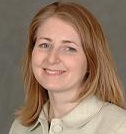 Victoria K. Shanmugam, MD, MRCP is Director of the NIH Office of Autoimmune Disease Research in the Office of Research on Women’s Health. As a KL2 scholar, mentored by Anton Wellstein, Christopher Attinger, and Virginia Steen, she developed novel models and new mechanistic insights of dysregulated angiogenesis and vasculogenesis impacting lower extremity uclers in connective tissue disease. She continued this work with NIH support as Director of the Rheumatology Division at George Washington University before her recruitment to the NIH.
Victoria K. Shanmugam, MD, MRCP is Director of the NIH Office of Autoimmune Disease Research in the Office of Research on Women’s Health. As a KL2 scholar, mentored by Anton Wellstein, Christopher Attinger, and Virginia Steen, she developed novel models and new mechanistic insights of dysregulated angiogenesis and vasculogenesis impacting lower extremity uclers in connective tissue disease. She continued this work with NIH support as Director of the Rheumatology Division at George Washington University before her recruitment to the NIH.